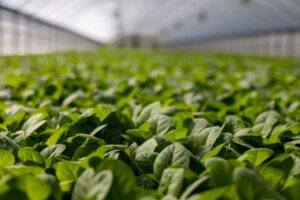Challenges Facing the Agrifood Sector in 2024
The agrifood sector is at the core of global sustainability and food security discussions as we move into 2024. From biotechnological advancements to fluctuating market demands, industry players are continually adapting to a rapidly changing landscape. However, a crucial and often overlooked factor that will remain at the forefront is how effectively the industry addresses waste from the food supply chain.
Sustainability and Environmental Impact
A significant concern for the agrifood sector is minimizing its environmental footprint while optimizing production to meet the growing global food demand. As we dive into the specifics, it becomes evident that responsible management of by-products is not only an ethical necessity but also a business imperative.
Converting waste into valuable resources can revolutionize the entire paradigm, offering a dual boon of waste reduction and energy generation. Pioneering strategies are emerging, hinting at a future where the once linear process transforms into a circular and regenerative system.
Technological Innovations for Waste Reduction
Moreover, the development of biodegradable packaging solutions is revolutionizing the way products are stored and transported, minimizing environmental impact while maintaining food safety and quality. Collaborative efforts between technology developers and agricultural producers are crucial in scaling these innovations effectively.
Additionally, consumer education on the benefits of reducing food waste is enhancing demand for sustainably produced and packaged goods. This shift not only conserves resources but also supports a more equitable food distribution system, where excess can be redirected to those in need, thus tackling both waste and food insecurity simultaneously.
Climate Change and Resource Scarcity
The agrifood sector’s adaptation to climate change is not just a matter of survival but also an opportunity for innovation. By embracing technologies such as precision agriculture, farmers can optimize water usage and reduce their ecological footprint. Furthermore, the integration of renewable energy sources in agricultural practices helps reduce dependency on fossil fuels, enhancing sustainability.
As consumer awareness is growing, there is a rising demand for products that adhere to sustainable practices, driving the industry toward greener solutions. These strategic adaptations not only preserve vital resources but also align with global efforts to combat climate change.
Economic Pressures and Market Dynamics
Fluctuating economic conditions exert significant pressure on the agrifood sector, forcing businesses to balance cost-efficiency with sustainable practices. Operators need to juggle investments in waste-reducing innovations while offering competitive pricing to withstand market volatilities.
Furthermore, as consumers become more environmentally aware, they influence the market by demanding sustainably produced products. Companies are nudged toward greener philosophies, which, in its essence, encourages the reduction of excess food from farm to fork.
Policy and Regulatory Frameworks
Beyond the field and market, regulations set the stage for how waste is managed within the agrifood sector. As we progress into 2024, we expect to see stricter laws governing responsible waste disposal and recycling.
National and international policy initiatives may incentivize or even mandate waste audits, helping operators identify key areas where they can mitigate loss. This integrated approach ensures that measures taken are not just isolated efforts but part of a cohesive strategy aimed at fostering a sustainable agrifood economy.
Social Responsibility and Public Perception
Lastly, the agrifood sector must reckon with its social responsibility. There is an undeniable connection between the food we produce, how we steward our resources, and the welfare of our communities. As the public becomes more cognizant of waste-related issues, businesses are called upon to display transparency in their practices and actively engage in reducing the food supply chain waste.
Collaborative ventures between the private sector, NGOs, and governments can set a precedent, illustrating that minimizing waste and nourishing the planet are not conflicting goals but, instead, the ingredients for a healthy and prosperous future.
As we survey the landscape of challenges facing the agrifood sector in 2024, we acknowledge the intricacy of each hurdle. The path forward requires a synchronous effort on multiple fronts—a blend of ingenuity, agility, and conscientiousness. Addressing waste from the food supply chain is more than an operational tweak; it is a transformative endeavor that embraces sustainability as a cornerstone for enduring success. The agrifood sector’s commitment to this cause will be pivotal in shaping a resilient food system for generations to come.



